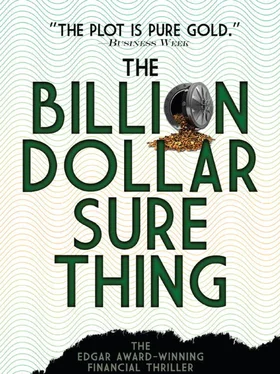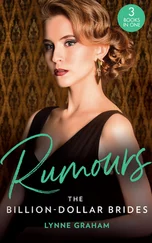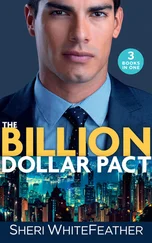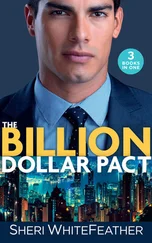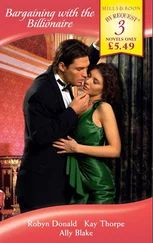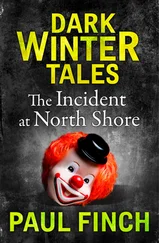The secretary of the treasury shook his head as he listened to these comments, but the secretary of state continued without taking notice.
“But all this is really beside the point. Even if Henry is correct, and even if it would cost us five to ten billion, still in my judgment we have no choice but to defend the dollar right up to the weekend. What if we don’t? The whole world will witness what they will thereafter believe was a forced tripling of the price of gold by the United States, in spite of all prior policy statements to the contrary. And much of the world would be only too happy to accept that it had been the Russians who engineered the whole thing. Imagine what would happen to future faith in the dollar. Look at what happened to Britain. Once the world lost faith in sterling, its influence in Asia, in Africa, and even in Europe proper went to the lowest levels in history. All within just a few years. Oh, no! To follow such a path of action would be political suicide. That we must raise the price of gold and once again make the dollar convertible is clear. But we must do this according to our plan, and our schedule.”
The chairman of the Federal Reserve Board then spoke up for the first time.
“We could always change the plan, you know.”
The president sighed. For years the man heading the Federal Reserve Board had been pushing for a restoration of convertibility of the dollar. It was he who had insisted that this could only be done through a massive increase in the official gold price. It was he who pressed the urgency of the problem. Until the president had decided to follow that advice. This, now, apparently made the entire concept suspect. Unbelievable what happens so often to reasonable men who develop illusions of greatness when in office.
“Frank,” said the president, “I think we can forget that idea. It’s too late to turn back at this point. What could we possibly gain from it? Irrespective of what happens in the markets during the next day or so, the fundamental problem remains. We must restore convertibility of the dollar. What’s happening today only proves how urgent this is. Either we act now, or the world will act against us.”
“But—”
“Look, the point that the secretary of state made is a valid one. The overriding consideration now must be the preservation of the prestige of the dollar. That is, after all, the whole objective of this exercise. We not only want to put the dollar back onto a realistic basis, but just as important, we want to regain once and for all the respect of the world for the people who manage the dollar—and that means, ultimately, the people in this room. People don’t trust managers who panic. Nor do they trust people who let themselves be taken for a ride by either the Russians or the speculators.”
“I’m afraid I’m being misunderstood,” said the man from the Federal Reserve. “I am not for abandoning the objectives of our plan. My position on that is quite well known. I am referring to the method employed to achieve that objective. Nobody says that we must raise the price of gold to $125 overnight. Nobody says that we must, in our God-given wisdom, decide that the dollar must be devalued by 15 percent this weekend. We can let the dollar find its own level. And the same for gold. Turn them loose. Let the markets decide. Go back to floating.”
Henry Crosby interrupted, “Frank, we’ve been over that subject at least a hundred times. You professors, or ex-professors, always toot on the same note. But 1971 proved, once and for all, that floating does not work. Everybody cheated last time, including ourselves. It would be folly to attempt that again.”
The president had heard all this before. He recognized the merits of both arguments. But now he was convinced that Crosby was right. The world of commerce wanted stability; businessmen wanted to work with knowns, wanted to know where they stood not only today, but a year from today. If the United States could not give them a stable dollar based on gold that would meet their needs, they would use something else. And the Common Market would just love to give it to them. He did not want to turn this into another debate on economics. He had attended two semesters on that subject in college. And that had been quite enough.
“Gentlemen,” he said, “we shall stick to the original plan. And the methodology and timing already agreed upon. But we are going to have to prevent a panic. I’m prepared to intervene in the markets right now. From what our intelligence reports said, if we let the rates slip any further a real run could start immediately. Is that right?”
The other men in the room indicated their agreement with this analysis. Again the president turned to his secretary of the treasury, Henry Crosby.
“Henry, how much will it take, and how should we go about it?”
“Mr. President, I figure that we will need as much as $5 billion to ride out the next twenty-four hours—up to noon our time tomorrow. I would not want to venture even a guess beyond that point.”
“How will we work?”
“Quite simply. We will go into the market as a seller of francs, marks, guilders, yen—whatever comes pouring in at us. This way we will keep their rates relative to the dollar inside the IMF limits. Otherwise, we would be faced with a progressive de facto devaluation.”
“Have we got enough of those currencies to do the job?”
“No, but we can borrow almost unlimited amounts through the Bank for International Settlements. Thank God we brought Bollinger into this plan ahead of time. I’m sure he’s right on top of the situation and will be able to work out a swap arrangement in Europe immediately. We’ll swap dollars for a bushel basket of those other currencies and have lots of ammunition to work with. There’s one hooker here, however. The BIS will no doubt demand an insurance clause on behalf of the countries putting up their currencies. In other words, we will have to bear the risk and cost of the dollar devaluation. I am sure that once we have demonstrated such a firm stand, the Europeans will not just stay idle but also help us ward off the speculators. Between us, we should be able to withstand enormous pressure. Of course, there are always limits. That’s why I say, let’s try it for twenty-four hours, and then look again.”
The president appeared fully satisfied with Crosby’s proposal.
“What do you think we should do about the gold price?”
“There’s absolutely nothing we can do. After all, we’re hardly going to sell any gold from Fort Knox at current free market prices when we know that from Saturday on it will be worth $125 an ounce. I’d say, let’s just ignore gold and concentrate on stopping the run out of the dollar.”
“I’ll buy that,” said the president. “Now, what do we do about the Russians?”
“Scare the bejeezus out of them” was the advice of Henry Crosby.
“How?”
“Give ’em a bit of their own medicine,” said Crosby.
“I don’t think we have that kind of medicine in stock.”
“Oh, yes, we do. Wheat. They’ve just gone through the biggest crop failure in Russia since the revolution. They need our wheat desperately. Look,” said Crosby, now in full command, “it’s no longer the good old days over there. Their people won’t accept going back to bread rationing, or anything near it. But if we stop all grain shipments, that’s what will have to happen. The Canadians are sold out, and so are the Australians. That’s why they originally came to us. Well, we’ll just tell them that we’ve changed our minds; that we’re putting an immediate embargo on all food exports to Eastern Europe. And tell them that their own foolish actions in the currency field, which are doomed to failure anyway, are responsible.”
Читать дальше
